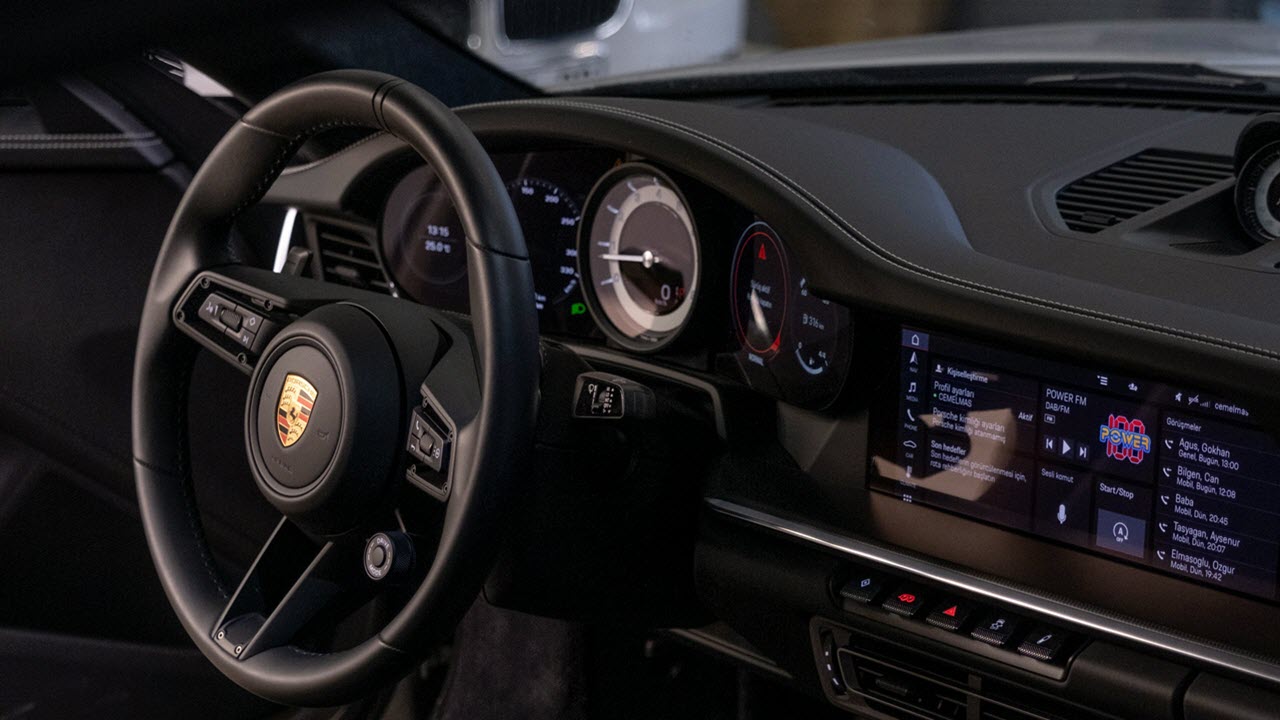
The check engine light (CEL) on your Porsche’s dashboard can be an unsettling sight, signaling potential issues with your vehicle. While this warning light may seem like a small concern, it’s important to address it promptly to prevent further damage to your car and ensure optimal performance. In this article, we’ll explore the most common causes of a check engine light in Porsches and the steps you can take to resolve them.
-
Loose or Damaged Gas Cap
One of the most common and simplest causes of the check engine light coming on is a loose or damaged gas cap. A faulty gas cap can cause a drop in pressure within the fuel system, triggering the CEL. If your Porsche’s check engine light comes on shortly after filling up or if you notice fuel vapors, check the gas cap to ensure its securely tightened or replace it if necessary.
-
Faulty Oxygen Sensor
The oxygen sensors in your Porsche monitor the levels of oxygen in the exhaust gases, helping the engine control unit (ECU) adjust fuel efficiency. If an oxygen sensor fails, it can lead to poor fuel economy, increased emissions, and engine performance issues. Replacing a faulty oxygen sensor is crucial to maintaining your vehicle’s efficiency and minimizing emissions.
-
Worn Spark Plugs or Ignition Coils
Spark plugs and ignition coils are integral to the combustion process in your Porsche’s engine. If these components become worn or malfunction, the engine may misfire, leading to a rough idle, poor acceleration, or decreased power. A malfunctioning ignition system can also cause the check engine light to turn on. Replacing worn spark plugs or faulty ignition coils can resolve this issue and restore optimal engine performance.
-
Mass Airflow Sensor Issues
The mass airflow (MAF) sensor measures the amount of air entering the engine and helps regulate the fuel-air mixture for efficient combustion. If the MAF sensor becomes dirty or faulty, it can result in poor acceleration, rough idling, and decreased fuel efficiency. Cleaning or replacing the MAF sensor is often necessary to resolve the issue and restore engine performance.
-
Catalytic Converter Failure
The catalytic converter is a critical component in your Porsche’s exhaust system, helping to reduce harmful emissions. Over time, the converter can become clogged or damaged, triggering the check engine light. A faulty catalytic converter may also lead to poor engine performance, reduced fuel efficiency, and an increase in harmful emissions. Repairing or replacing the catalytic converter is typically required to fix this issue.
-
Vacuum Leak
A vacuum leak occurs when air enters the engine through a broken hose or gasket, disrupting the air-fuel mixture and triggering the check engine light. Symptoms of a vacuum leak include rough idling, engine stalling, and a noticeable drop in power. Identifying and fixing the source of the vacuum leak, whether it’s a damaged hose or faulty gasket, is necessary to restore engine performance.
-
Fuel Injector Problems
Fuel injectors are responsible for delivering fuel into the engine for combustion. If an injector becomes clogged or faulty, it can lead to poor engine performance, reduced fuel efficiency, and an increase in emissions. The check engine light may come on as a result. Cleaning or replacing the fuel injectors is necessary to resolve this issue.
-
Engine Control Unit (ECU) Issues
The engine control unit (ECU) is the brain of your Porsche’s engine, controlling various sensors and components to ensure smooth engine operation. If the ECU malfunctions or loses its programming, it can cause a variety of issues, including triggering the check engine light. An ECU failure typically requires professional diagnosis and reprogramming or replacement to resolve.
-
Bad Battery or Alternator
A weak battery or failing alternator can affect your Porsche’s electrical system, potentially triggering the check engine light. If the battery voltage is too low or the alternator is not charging the battery properly, your vehicle’s performance may suffer. Having the battery and alternator tested and replaced, if necessary, can eliminate this issue and restore normal operation.
-
Emissions System Problems
Porsche vehicles are equipped with an advanced emissions system that helps reduce harmful pollutants. If there is a fault with components such as the EGR valve, purge valve, or evaporative emissions control system, the check engine light may turn on. These components are crucial for maintaining emissions compliance, and any issues should be diagnosed and repaired promptly to ensure optimal vehicle performance and environmental responsibility.
What Should You Do When the Check Engine Light Comes On?
If the check engine light in your Porsche comes on, it’s important not to ignore it. While some issues may be minor, others can lead to more severe engine damage if left unresolved. Here’s what you should do:
Check for Obvious Issues: Ensure your gas cap is secure, and check for any visible signs of leaks or damage.
Scan for Diagnostic Trouble Codes (DTCs): Use an OBD-II scanner to retrieve the error codes and pinpoint the issue. This can help you determine if it’s a minor problem or something more serious.
Consult a Professional Mechanic: If the problem persists or you’re unsure of the cause, it’s best to consult a certified Porsche mechanic who can perform a thorough diagnostic and recommend the best solution.
Conclusion
The check engine light in your Porsche can be triggered by a wide range of issues, from simple problems like a loose gas cap to more complex issues with the engine or emissions system. Promptly addressing the cause of the warning light is key to maintaining your vehicle’s performance, preventing further damage, and avoiding costly repairs. Regular maintenance and timely repairs will help keep your Porsche running smoothly for years to come.







